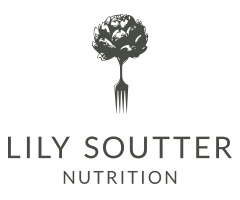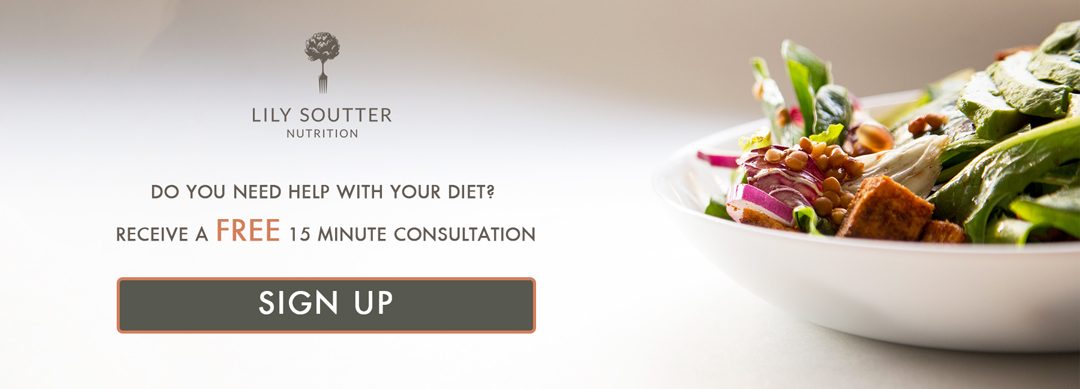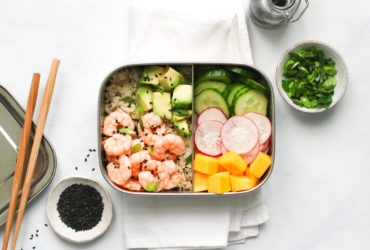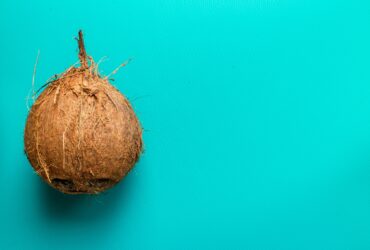Have you ever thought about foods to get you in the mood? All it takes is a quick google search to find a never-ending list of edible aphrodisiacs. But can food really improve libido or is this all down to placebo?
Chocolate
Chocolate has long been thought of as a sensuous food associated with desire, but is there evidence to back the libido-boosting claims? Some research suggests that chocolate may promote the release of chemicals called phenylethylamine and serotonin which is thought to produce some aphrodisiac and mood-lifting effects. [1]

However, not all studies have been so positive. One study, in particular, looked at the effects of sexual function in women who consumed chocolate daily. The study found no significant differences in sexual arousal or desire between those who consumed chocolate daily and those who did not. [2]
Due to the conflicting reviews, firm conclusions cannot be drawn on whether chocolate is an aphrodisiac and therefore help boost libido.
Wine
Historically, there has been an association with alcohol and romance which is especially true when it comes to advertising. Reduced inhibitions are one of the most significant short term side effects that come with alcohol consumption and can increase sexual behaviour. However, in men, both short and long term alcohol consumption has shown in some studies to lower testosterone levels which can negatively affect sex drive. Since testosterone is a vital sex hormone involved in sexual arousal and desire, alcohol consumption may have deleterious effects on male libido and sexual performance.[3]
In females, however, some studies suggest that alcohol consumption may increase sexual desire, arousal and pleasure however may also lower physiological arousal. [4] Despite this, the evidence between alcohol consumption in females and libido are mixed and whilst enjoying a glass or two is fine, binge drinking is linked to risky sexual behaviours such as unprotected sex. In truth, many mistake alcohol as an aphrodisiac, but it’s more likely to be alcohol’s inhibition-lowering effects that are linked to increased sexual behaviour.
Oysters
Oysters have long been dubbed as an aphrodisiac because they are an extremely rich source of zinc. In fact, just one oyster contains as much as half our daily recommended intake. Zinc is a critical mineral for the production of sperm and testosterone, therefore it would seem obvious to link oysters with increased sex drive. Unfortunately, in reality, there aren’t many studies directly linking zinc to sexual health.
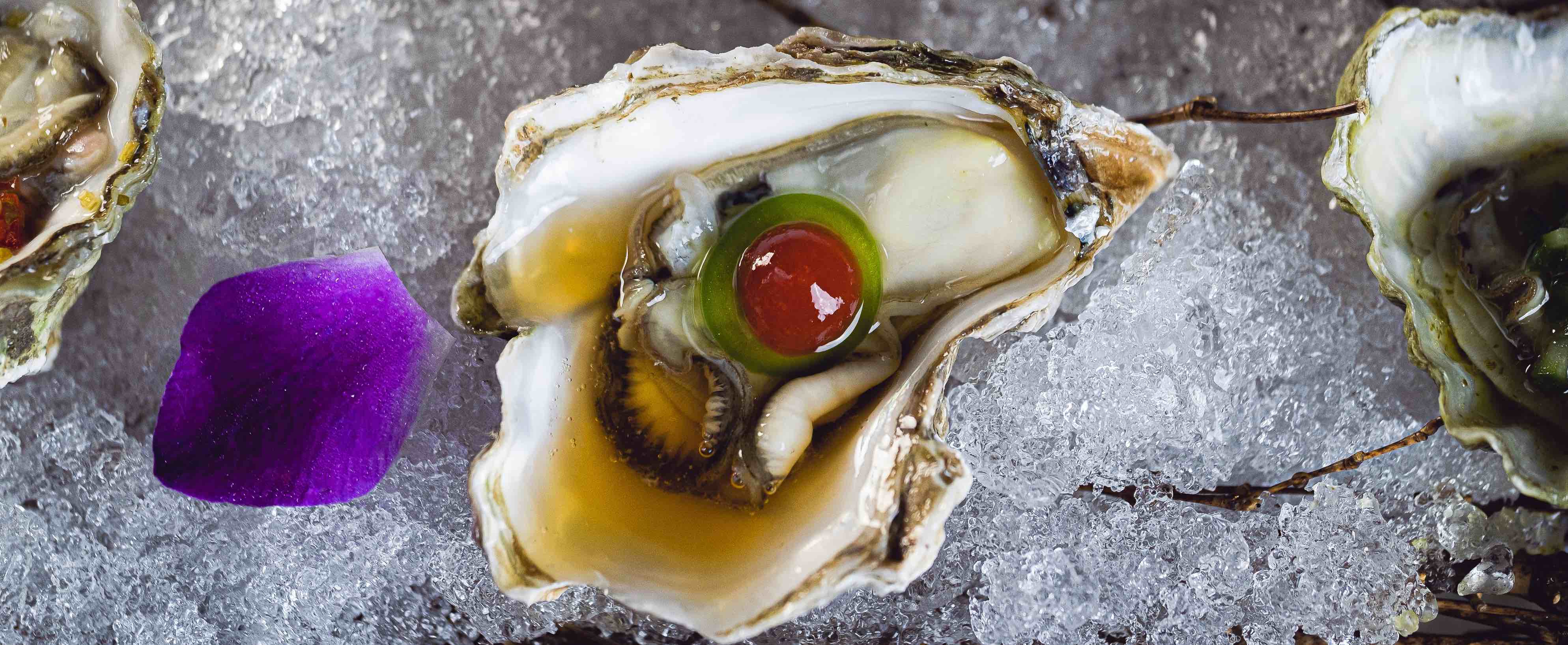
One study did find that zinc supplementation increased testosterone production, the main hormone linked to sex drive, however, it had limited effects on helping to alleviate sexual dysfunction in men. [5]
In reality, there is limited research to suggest that supplementation with zinc may help to increase sex drive, but this doesn’t automatically mean that the consumption of oysters will have the same effect. Therefore if you’re not a fan, you may be pleased to hear that there’s no need to rush straight to the oyster bar!
Strawberries
Many claim that no other fruit inspires thoughts of sensuality like strawberries do. But what does the science say? Strawberries are an extremely rich source of vitamin C. One study has shown that supplementing with vitamin C may help improve vascular function and increase oxytocin release, both of which are relevant to sexual behaviour and mood. [6] But it’s important to note that this was one study, carried out 15 years ago on a small sample size and on an isolated nutrient. Therefore it’s too early to say whether strawberries can really be crowned the sexiest fruit
Summary
Unfortunately, there is little evidence linking edible aphrodisiac to libido and more research is needed before making conclusions before changing your diet to boost libido! It’s highly likely that the majority of funding will be going to chronic disease prevention rather than research on foods to improve our sex drive!
Despite this, in my opinion, it’s important to choose foods which genuinely makes you feel good. Whether that’s strawberries dipped in chocolate or a glass of red wine, foods that put a smile on our face tend to be the sexiest foods! I think your libido would be much higher than if you weren’t consuming them at all
What do we know affects sex drive?
1. Stress
Stress, anxiety or exhaustion can play a key role in reducing libido.
2. Support mood
Depression is a serious illness and can be all-encompassing. It can affect all aspects of life which include sex-drive.
3. Balance hormones
As we age and go through menopause, falling levels of sex hormones such as oestrogen and testosterone can play a key role with reduced sex drive.
4. Don’t over-do the alcohol
Drinking excessive amounts of alcohol is directly linked to loss of sex drive.
References
1. Afoakwa, E. O. (2008). Cocoa and chocolate consumption – are there aphrodisiac and other benefits for human health? : invited review. South African Journal of Clinical Nutrition, 21 (3), 107-113.
https://works.bepress.com/emmanueloheneafoakwa/90/
2. Salonia, A., Fabbri, F., Zanni, G., Scavini, M., Fantini, G. V., Briganti, A., Naspro, R., Parazzini, F., Gori, E., Rigatti, P. & Montorsi, F. (2006). Chocolate and women's sexual health: An intriguing correlation. The journal of sexual medicine, 3
(3), 476.
http://onlinelibrary.wiley.com/doi/10.1111/j.1743-6109.2006.00236.x/abstract
3. Halpern-Felsher, B. L., Millstein, S. G. & Ellen, J. M. (1996). Relationship of alcohol use and risky sexual behavior: A review and analysis of findings. Journal of Adolescent Health, 19 (5), 331-336.
https://www.ncbi.nlm.nih.gov/pubmed/7624547
4. Beckman LJ & ., A. K. (1995). Women, alcohol, and sexuality.: US National Library of Medicine National Institutes of Health.
http://onlinelibrary.wiley.com/doi/10.1111/j.1743-6109.2006.00236.x/abstract
5. Jalali GR, Roozbeh J, Mohammadzadeh A , Sharifian M , Sagheb MM , Hamidian Jahromi A , Shabani S , Ghaffarpasand F & ., A. R. (2010). Impact of oral zinc therapy on the level of sex hormones in male patients on hemodialysis. US National Library of Medicine National Institutes of Health, 32 (4), 417-9.
https://www.ncbi.nlm.nih.gov/pubmed/20446777
6. Brody, S. (2002). High-dose ascorbic acid increases intercourse frequency and improves mood: a randomized controlled clinical trial. Biological Psychiatry, 52 (4), 371-374. https://www.ncbi.nlm.nih.gov/pubmed/8934293
Lily is a Nutritionist in London who graduated from Newcastle University with a BSc (Hons) degree in Food and Human Nutrition (AfN accredited) where she was awarded the Sage Faculty for Excellence Scholarship on an annual basis. She then went on to complete a 2-year post-graduate Diploma in Nutritional Therapy and is currently working towards her MSc in Nutritional Medicine (AfN accredited) at the University of Surrey. Lily’s extensive knowledge of the science of food and health, enables her to regularly write for The Times, The Telegraph, The Daily Mail, The Independent, Women’s Health and Cosmopolitan.
Her frequent TV appearances include ITV’s This Morning with Holly Willoughby and Phillip Schofield, and ITV’s primetime series Save Money: Lose Weight with Dr Ranj Singh. Lily’s passion is to simplify the science around nutrition, to provide health hacks and smarter eating strategies to empower people to enjoy a healthy and successful lifestyle. Her specialities lie in workplace wellness, implementing nutrition-focused wellbeing programmes within corporate organisations across the UK.
Lily also sees individual clients from her London nutrition clinic in Chelsea and a private medical practice based in Notting Hill.
